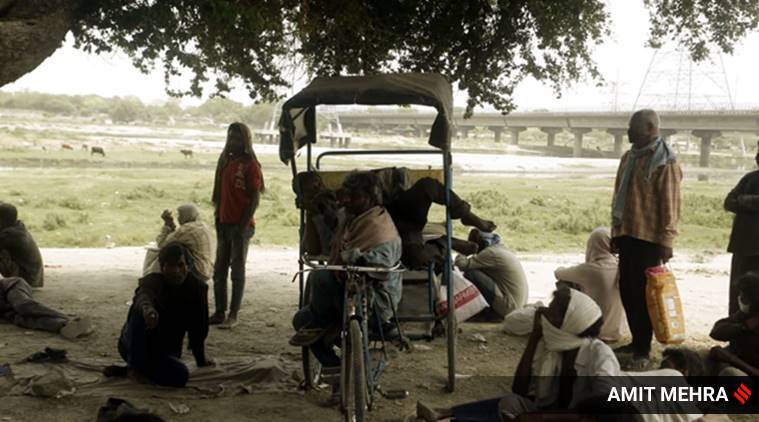 In an online press conference, social activist Bilal Khan said, “Not a single component of the 1.7 lakh crore relief package announced by the government has reached the poor.” (Representational Image)
In an online press conference, social activist Bilal Khan said, “Not a single component of the 1.7 lakh crore relief package announced by the government has reached the poor.” (Representational Image)
Members of several civil societies on Saturday said the state and Central governments need to revisit their current policies in the wake of the lockdown imposed due to COVID-19.
Nearly a month since the lockdown began, relief measures announced by both state and Central government are yet to reach the poor and needy, civil societies said, emphasising on the need for government collaboration with local communities and NGOs for ward-level planning to create appropriate channels for the procurement of relief material, as well as implementation of decisions.
Recently, Collective for Spatial Alternatives, Ghar Bachao Ghar Banao Andolan, Homeless Collective, Human Rights Law Network and Paani Haq Samiti prepared a report on “Urban Planning Response in Mumbai During the COVID-19 Lockdown: A Citizen’s Charter”. The report has been endorsed by other civil society groups such as Jan Swasthya Abhiyan, Movement for Peace and Justice and People’s Union for Civil Liberties, among others. It provides an action plan for Mumbai that can help the government respond in a more equitable way over the next few weeks, in the effort to overcome the pandemic.
In an online press conference, social activist Bilal Khan said, “Not a single component of the 1.7 lakh crore relief package announced by the government has reached the poor. Many don’t have money to buy a new gas cylinder, and free gas announced by the government has not yet reached them…”
The members also criticized the government’s efforts for construction workers. Even though the government has announced relief for construction workers, only 12 lakh workers are registered with the State Construction Workers’ Welfare Board, they said.
In the charter prepared by the groups, members have recommended the need for special mechanisms for people to voice their grievances, given that the civic administration’s ward offices are operating on a skeletal basis. The PDS must be universalised, and rations for at least three months should be made available for free to anyone who approaches a ration shop, till the economic shock of the lockdown subsides, they said. The MCGM must open more cooked food distribution centres, and spread them out based on population density (more centres in electoral wards with higher densities), the report said, and a mobile fleet of food delivery vans that can reach different places on call must also be set up.
The government must devise a programme to protect informal rental tenants from evictions and immediately set up an emergency shelter programme, through which government buildings, institutions, and un-allotted (but acceptable) rehabilitation units are all prepared for accommodation in conformity with physical distancing norms, the report added. It said that migrant workers who are keen to return to their villages must be allowed to leave in a safe and dignified manner.
The government must, therefore, make all the arrangements, after testing people for the virus, and provide free and safe passage for the uninfected to leave, said the report.